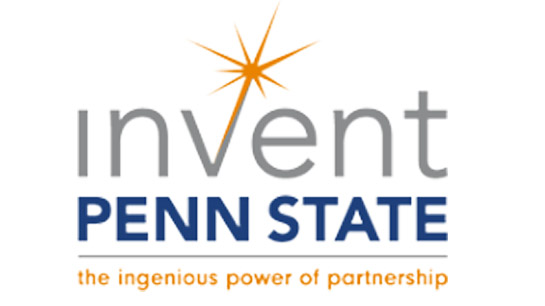Plant science major Hunter Swisher took what he learned at Penn State and turned it into a business—before he even graduated. His company, Phospholutions, developed a process for golf courses—and really any lawn—that reduces fertilizer consumption and phosphorus runoff, while encouraging heartier lawn growth.
He got his business off the ground with the help of Penn State’s no-cost business pre-accelerator, Happy Valley LaunchBox Powered by PNC Bank—one of twenty-one innovation hubs across the Penn State system. Providing business startup training, access to no-cost legal and marketing consulting and a free co-working space, the pre-accelerator helped Swisher and his business partner, fellow student Erin Knabe, take Phospholutions from the chemistry labs to golf courses in Florida and Pennsylvania.

Hunter Swisher, CEO & Founder, Phospholutions, Class of 2017
Impact
Because greener courses are good for business and the environment
“I came from a very high technical background in the science field. I needed to learn everything from financing a startup to how to do the customer discovery process, then relating and pitching to investors. All of that was stuff I had no experience with.”
Incubating And Growing Businesses
As Penn State alumnus Hunter Swisher explains it, he had one primary goal when he enrolled at the University—to create his own job and work for himself after graduation.
His idea was to build on a piece of technology that he stumbled across during his undergraduate work and commercialize it.
“That was when I decided to leave the lab and start the path towards entrepreneurship,” Swisher said.
He released his first product line, Rhizosorb—a non-fertilizer product that promotes root growth in turf, which in turn allows owners to use less water, fertilizer, and other chemicals.
But Swisher faced major hurdles in starting his own company and getting Rhizosorb to market.
At the same time, Penn State President Eric Barron launched Invent Penn State, a University effort to promote entrepreneurship within its campuses and surrounding communities.
“Invent Penn State was just starting. What Invent Penn State had done was provide all of those resources to de-risk the venture for me and allow me to pursue this,” Swisher said.
“Getting your ideas into the marketplace is the same thing as having your work in a publication and the same thing as teaching a student,” said Penn State President Eric Barron. “This is just another way we live our mission as a university.”
As a student, Swisher participated in the Penn State Summer Founders Program, the Ben Franklin TechCelerator and the Happy Valley LaunchBox accelerator. He also worked with the Small Business Development Center and Penn State Law’s Entrepreneurship and Intellectual Property clinics. Swisher’s business concept won numerous pitch competitions and garnered support from a local investor.
One Root at a Time
But even with financing and support, Swisher’s new company—Phospholutions—still had to overcome a key hurdle: testing.
He decided to turn to the University’s alumni network for help.
“So I approached Rick Pagett, who is a Penn State alumnus and superintendent of the Penn State Golf Courses. I said, ‘Hey, I have an idea, can we run some trials?’ We got phenomenal results. After just one application, we showed that we can double the root depth on golf courses in less than two months. In turn, that created
Swisher continued, “We wanted to replicate those results. So we reached out to fifteen superintendents who were all Penn State alumni across the East Coast. We did trials with them. They were all willing. I leveraged the Penn State network to get all of the in-field research done for basically everything from our marketing materials to proving our product worked.”
But Swisher sees the impact of
“We started in turf because there is a lot of value added to golf courses by applying our product. We get a lot of cost savings. But really where our company is
He added that the Phospholution’s product has already been certified organic for the state of Pennsylvania and the company is pursuing national certification.
Looking back on his Penn State undergraduate career and the development of his own startup, Swisher said, “This is exactly what I wanted to do. I only applied to Penn State. I didn’t apply to another university. I knew where I fit in. I knew where I had to be.”

Invent Penn State is a Commonwealth-wide initiative to spur economic development, job creation, and student career success. Invent Penn State blends entrepreneurship-focused academic programs, business startup training and incubation, funding for commercialization, and university-community collaborations to facilitate the challenging process of turning research discoveries into valuable products and services that can benefit Pennsylvanians and humankind.

Swisher was featured in a Golf Course Industry article. The article highlights Swisher’s entrepreneurial journey as well as features Penn State’s turfgrass program and the expertise found across the University.

In December 2022, Swisher was named Forbes “30 under 30” for social impact. The category recognizes those who are “leveraging business smarts to save the world.” The company, which has raised $22 million in combined equity and debt financing, aims to create a more sustainable future for agriculture by enhancing the efficiency of phosphorus fertilizers.



